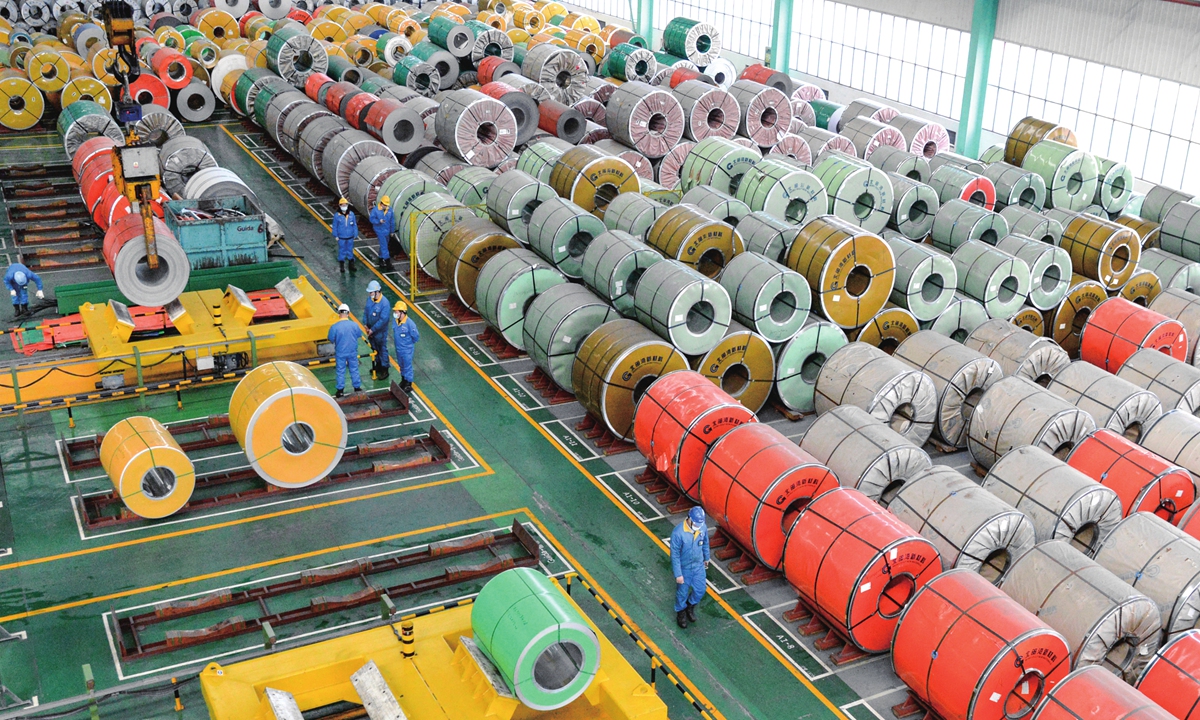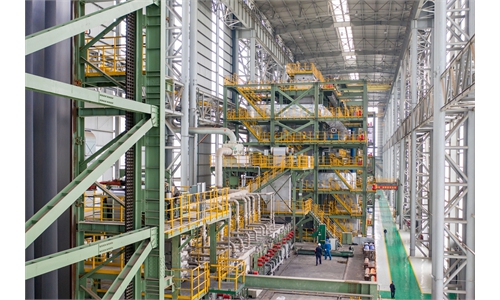
Workers at a steel processing enterprise lift processed steel coils at the Jingjiang Industrial Park in Taizhou, East China's Jiangsu Province on February 24. Due to strong demand at home and abroad, the production site is busy, and the company is sprinting to achieve its February operations target. Photo: cnsphoto
The prices of ferrous metals, including iron ore and deformed steel bar, slumped on Thursday after Chinese regulators took steps to rein in rapid price hikes.Ferrous metals' futures prices saw a continuous decrease over the past two days. The price of iron ore dropped as much as 8.4 percent on Thursday, while that of coke was down as much as 7.2 percent.
The price declines are likely due to the government's measures, which include crackdowns on speculation, and they will ease pressure on downstream enterprises, Wang Guoqing, research director at the Beijing Lange Steel Information Research Center, told the Global Times on Thursday.
Prices of staple commodities have seen dramatic increases since the beginning of the year due to the global recovery from the COVID-19 pandemic, which drove up demand.
Surging prices were putting huge cost pressures on downstream enterprises, leading Chinese regulators to take action to stabilize the prices of staple commodities.
An executive meeting of the State Council that focused on stabilizing commodity prices emphasized the importance of the stability of prices, and ordered government bodies to take measures - including raising export tariffs on certain iron and steel products - to increase supplies in the domestic market.
The meeting also decided to strengthen regulation of futures and spot markets, and take measures to identify abnormal transactions and speculation.
The price plunges indicate that these measures have had immediate impact, and as the bubble in the market dissipates, overall price levels are getting more stable, Wang said. However, high prices overseas could still drive up domestic prices, she added.
For example, India, a major ferrous metals exporter, is still grappling with a severe epidemic, which could contribute to global shortages and in turn pose risks for domestic prices, according to Wang.

